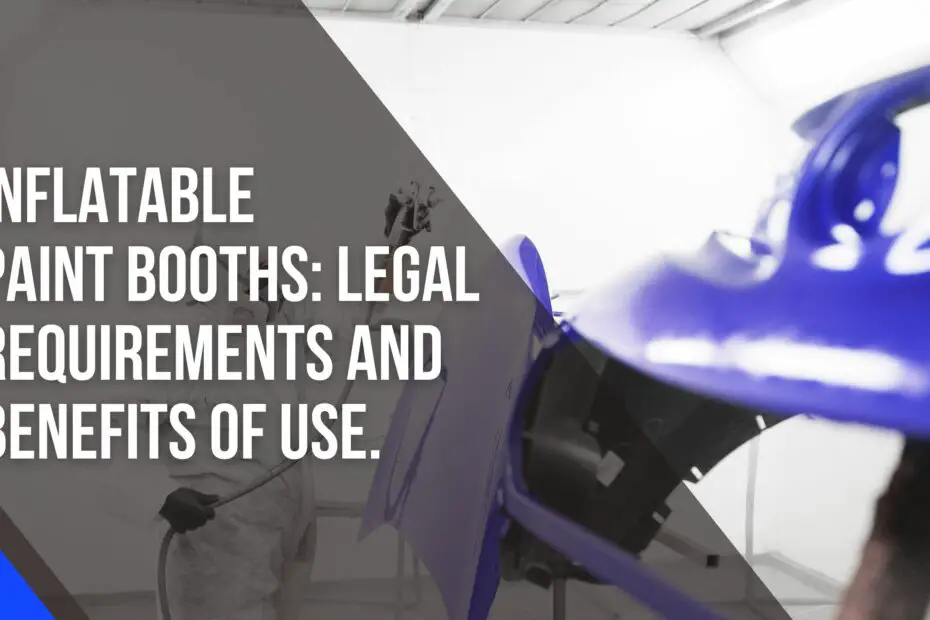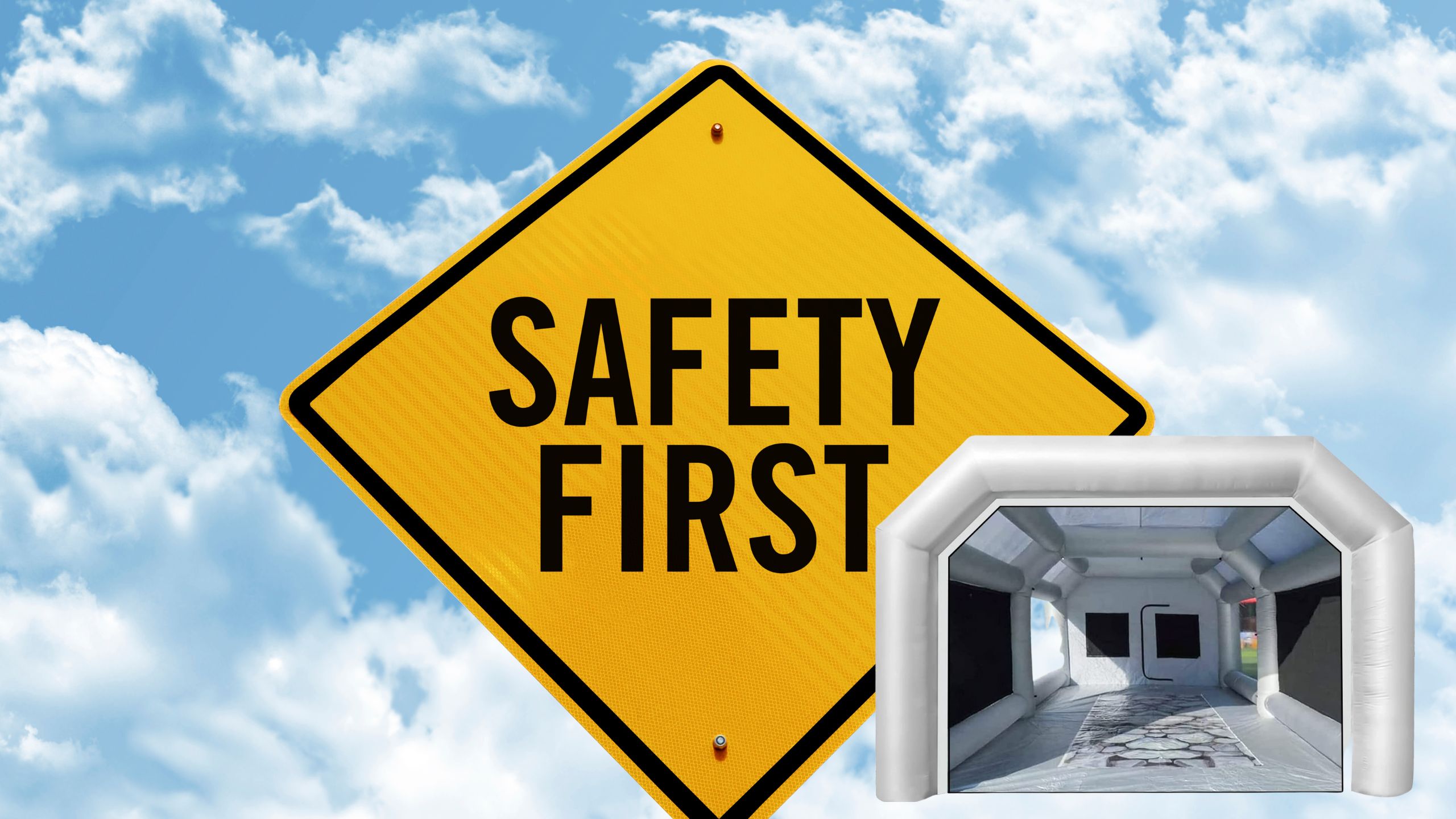Inflatable paint booths have become a popular choice for automotive painting and various industrial applications due to their convenience and portability. However, their legality, particularly in terms of compliance with environmental and safety regulations, often raises questions. This article aims to clarify the legal considerations surrounding inflatable paint booths, helping users understand their responsibilities and ensure lawful operation.
Are Inflatable Paint Booths Legal?
Inflatable paint booths are generally legal but subject to local regulations and safety standards. These regulations often pertain to ventilation, fire safety, and environmental concerns. It’s essential to check specific local building codes and environmental laws before using an inflatable paint booth. Compliance with OSHA standards is also crucial for workplace safety.
Understanding Regulatory Frameworks
The legality of inflatable paint booths hinges on several regulatory frameworks:
- Environmental Regulations: Key concerns include emissions, air quality, and waste disposal. In the United States, the Environmental Protection Agency (EPA) sets guidelines for Volatile Organic Compounds (VOC) emissions. Other countries have their respective environmental protection agencies with similar mandates.
- Safety Standards: These booths must adhere to fire safety and occupational health standards. Regulations by the Occupational Safety and Health Administration (OSHA) in the U.S., or equivalent bodies elsewhere, are critical to consider.
- Local Zoning and Building Codes: These can affect where and how an inflatable paint booth can be set up, especially in residential areas or specific commercial zones.
Assessing the Legal Status in Your Region
- Consult Local Regulations: The first step is to check with your local environmental and building authorities. Regulations can vary significantly from one locality to another.
- Permit Requirements: Some regions may require permits for operating a paint booth, particularly if you’re using certain types of paints or solvents.
- Industry-Specific Laws: For industries such as automotive or aerospace, additional industry-specific regulations may apply.
Ensuring Compliance
- Emission Control: Employ VOC capture and control systems if necessary. Use paints and solvents that are compliant with local environmental regulations.
- Safety Measures: Ensure the booth is made from fire-retardant materials. Implement adequate ventilation systems to prevent the buildup of fumes.
- Regular Inspections: Conduct regular inspections and maintenance of the booth to ensure ongoing compliance with safety and environmental standards.
- Record-Keeping: Maintain thorough records of your compliance efforts, including permits, inspection reports, and maintenance logs.
Best Practices
- Professional Consultation: Consider consulting with a legal expert or environmental consultant who specializes in this area.
- Stay Informed: Keep up-to-date with any changes in regulations that might affect the legality of your inflatable paint booth.
- Community Considerations: Be mindful of the impact on your community, especially if operating in residential areas. Noise, odors, and traffic can affect your neighbors and may have legal implications.
Conclusion
Inflatable paint booths offer a flexible solution for various painting needs, but their use comes with a responsibility to adhere to legal and regulatory standards. By understanding and complying with these regulations, operators can ensure that their use of inflatable paint booths is both legal and responsible, thereby protecting the environment, ensuring safety, and contributing positively to their communities. Always prioritize staying informed and compliant to avoid legal complications and ensure a smooth operation.

